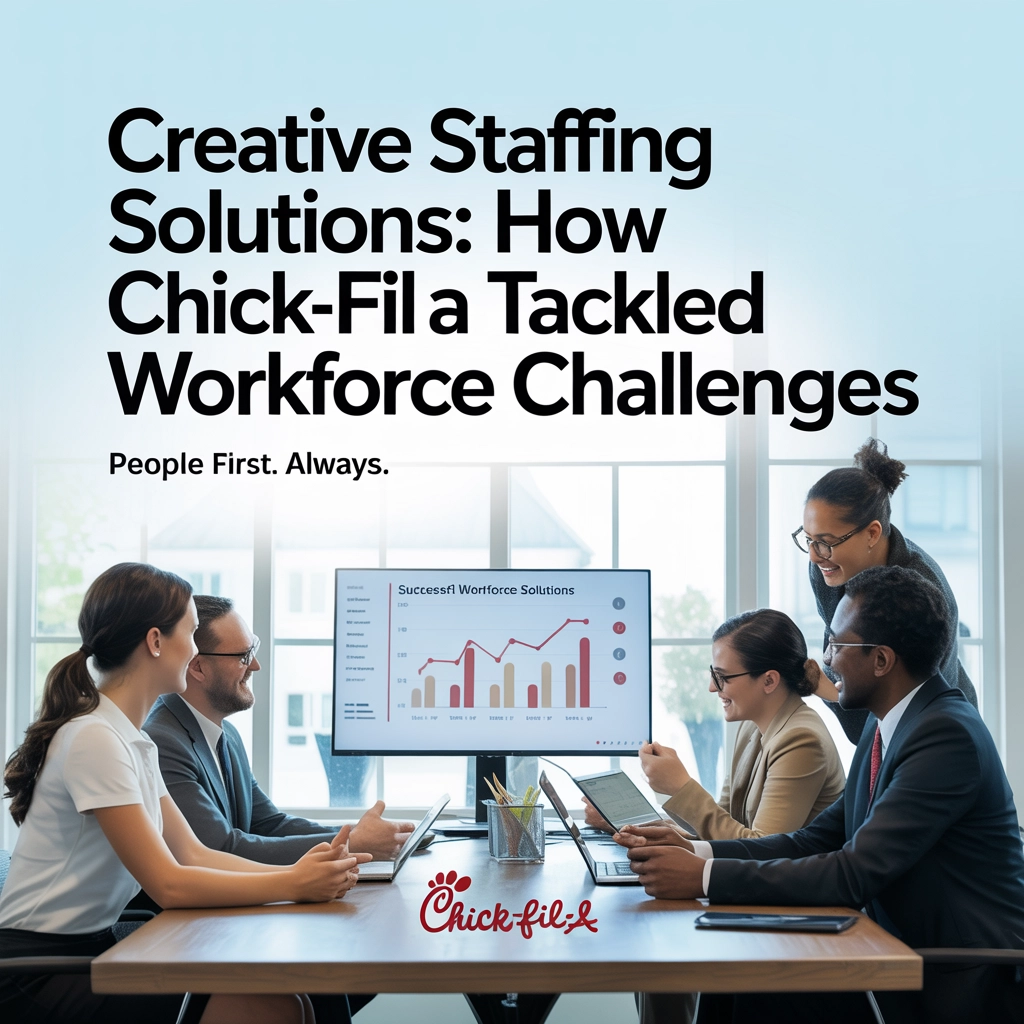In the ever-evolving world of foodservice, workforce shortages and high turnover remain relentless challenges for operators. Yet some brands continue to stand out for their innovative responses—none more so than Chick-fil-A. By combining forward-thinking technology, local ownership empowerment, and a character-driven hiring approach, Chick-fil-A has built a model for restaurant staffing resilience that offers big lessons for the entire industry.
Using AI to Hire the Right People—Faster
Chick-fil-A has always prioritized careful hiring, but workforce shortages called for more nimble solutions. At its Athens, Georgia location, operator John Moryl implemented Sprockets, an AI-driven hiring platform designed to streamline candidate selection. Sprockets refines the applicant pool using a handful of “fit” questions to identify qualities aligning with the most successful current employees. The result? A dramatic improvement in hiring quality, with Moryl reporting over 70% success rate on candidate selection after integrating the platform (Sprockets).
By reducing time spent on lengthy interviews and focusing on candidates flagged by the AI as most likely to succeed, managers redeployed their time toward training and guest experience. The system’s efficiency was so pronounced, Moryl could focus leadership efforts on developing top-performers—fueling both a stronger team and continued operational improvement.
Character-First, Competency-Second: Rethinking the Interview
Chick-fil-A believes technical competency can be taught, but character and chemistry are foundational. Their iconic interview question, “Why do you want to do this?” seeks to unearth intrinsic motivation, kindness, and a service mindset. Bob Ruffin, a multi-unit Chick-fil-A operator, says, “We’re looking for more than skills—we want someone who genuinely wants to serve others” (source: Chick-fil-A Operators).
This philosophy plays out in their “day-in-the-life” shadowing: Final-stage candidates work side-by-side with team members on the floor before a hiring decision is made. This practical test allows managers to observe real interactions, while giving prospective hires a genuine taste of the company culture. Those who shine often turn out to be culture leaders—helping retain peers long after onboarding.
Empowering Local Operators for Real-World Flexibility
Franchise franchisees at Chick-fil-A are given more autonomy than industry norms. Owners are encouraged to customize team development, incentives, and training to fit their location’s unique needs, all within the company’s standards. This decentralized approach means operators on the ground can adjust quickly to labor challenges specific to their market, whether it’s launching referral bonuses, flexible shift scheduling, or new engagement programs.
For example, some locations facing acute labor shortages have offered creative incentives such as free meals, exclusive merchandise, and even local scholarship programs for staff picking up extra shifts—showing a direct investment in staff well-being and community ties.
Going Beyond Training: Investing in Long-Term Employee Growth
Chick-fil-A’s staunch investment in training is evident from entry-level through management. Staff receive both front- and back-of-house cross-training, developing skills in guest interaction, kitchen efficiency, and even food safety. This multi-role training enables nimble operations: When surges hit, staff can pivot between stations seamlessly—cutting downtime and keeping service smooth.
Aside from task-based learning, Chick-fil-A also invests in leadership pathways. Team members showing potential are mentored and developed for more senior roles, creating a built-in ladder for advancement. This strategy has fueled retention, built a strong pipeline for internal promotion, and ensured vital operational knowledge remains within each store.
Operational Adaptability During Staffing Crunches
Despite best efforts, staffing shortages can cause operational strain. Rather than drop standards, Chick-fil-A stores have adopted flexible “pit crew” models, where employees are cross-trained and empowered to jump in wherever needed. Athens’ store used kitchen staff with drive-thru headsets and iPads to handle both orders and food prep—helping maintain service during acute labor gaps.
In extreme cases, operators have temporarily paused delivery services or closed dining rooms. Though not ideal, such moves have allowed stores to keep core operations running while protecting staff and customer experience—a strategy echoed by operators industry-wide in recent years (see "Behind the Scenes with Innovative Chefs: Labor Cost Solutions").
Lessons for Industry Peers
Chick-fil-A’s creative staffing toolkit provides important takeaways for food, beverage, and hospitality professionals navigating workforce disruptions:
- Invest in Smart Hiring Technology: Tools like Sprockets help identify the right-fit candidates, reducing costs and improving retention.
- Rethink Candidate Screening: Prioritizing character and hands-on trial shifts uncovers future leaders, not just warm bodies.
- Empower Local Leadership: Decentralization lets operators move quickly with tailor-made solutions for distinct audiences.
- Cross-Train Staff: Multi-role training creates operational resilience and deeper engagement.
- Flexible Incentives Work: Whether it’s gourmet meals, scholarships, or unique perks, staff want to feel valued—especially in tough times.
Chick-fil-A’s strategy isn’t just about surviving labor crunches but finding ways to thrive and uphold a standard of customer service recognized industry-wide. As the sector faces ongoing labor market shifts, success will come to those who combine innovative hiring, wholehearted staff development, and the flexibility to meet employees where they are.
For more on labor solutions and operational excellence, check out:
- Behind the Scenes with Innovative Chefs: Labor Cost Solutions
- How Bad Daddy’s Earned a 5x Return on Ad Spend with Visit-Based Marketing
What creative staffing solution has worked for your operation? Share your strategies in the comments or connect with us at Food & Beverage Magazine.
Written by Michael Politz, Author of Guide to Restaurant Success: The Proven Process for Starting Any Restaurant Business From Scratch to Success (ISBN: 978-1-119-66896-1), Founder of Food & Beverage Magazine, the leading online magazine and resource in the industry. Designer of the Bluetooth logo and recognized in Entrepreneur Magazine's “Top 40 Under 40” for founding American Wholesale Floral. Politz is also the founder of the Proof Awards and the CPG Awards and a partner in numerous consumer brands across the food and beverage sector.
